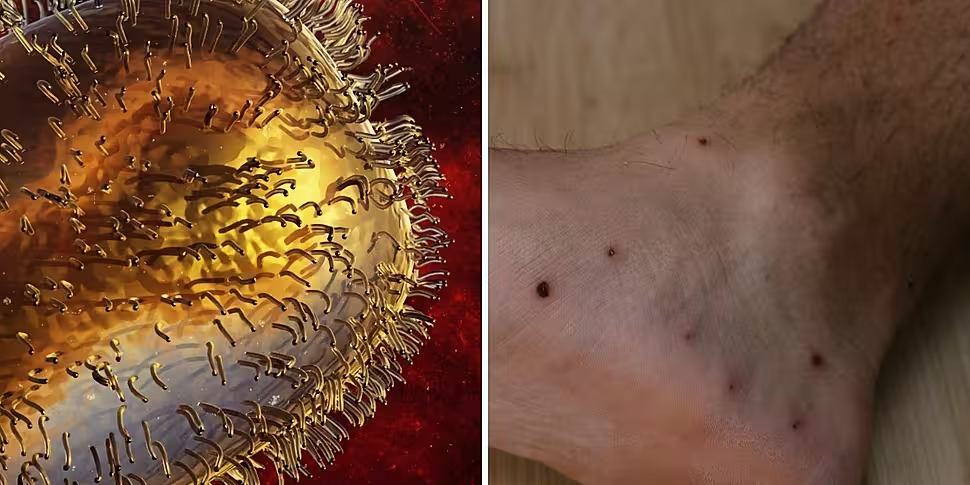Monkeypox patients may have to self-isolate for 21 days, according to a leading immunologist.
The first case of the virus was confirmed on the island of Ireland yesterday, with Northern Ireland’s Public health Agency now working to contact any potential close contacts.
The arrival of the virus on these shores was unexpected with 118 cases confirmed across Europe as of May 25th.
There are now 85 confirmed cases in England, three in Scotland and one each in Wales and the North.
The virus, which is normally reported in central and West African countries, causes a rash and fever – but symptoms are generally mild for most people.
Isolation
UCC Immunovirology Professor Liam Fanning told Newstalk the HSE has an expert group already in place, ready to act.
He said any patient diagnosed with the virus has a long period of isolation ahead of them.
“It will be down to kind of a bit like we had with COVID-19,” he said.
“Public health contacting people and isolation,” he said.
“I see some countries in Europe have asked that people who are virus positive would quarantine for 21 days and that reflects the kind of natural history of this infection – where individuals can be infectious for that amount of time.”
"Very containable"
Professor Fanning said Monkeypox is a “very containable infection” and the public should not be overly concerned.
He said he would not be surprised if it arrives in the Republic in the next few days and weeks.
“Again, we’ll have to depend on colleagues in public health to advise the individuals who are affected as to what their symptoms might be and those who are close contacts,” he said.
“To reach out to them and say look, you know, you need to be aware that these are the possible symptoms and when you start to see little pimples appearing on your body - hands and face particularly and sometimes in the groin - that you need to pick up the phone and contact your health provider or GP.”
Outbreak
The European Centre for Disease Prevention and Control (ECDC) said this is the first monkeypox outbreak in Europe with no known epidemiological links to West or Central Africa.
It said most cases are in young men who identify as MSM [Men who have Sex with Men].
The ECDC warned that the virus can cause “severe disease in certain population groups, such as young children, pregnant women and immunosuppressed persons”.
The centre said infected patients should isolate until their scabs fall off - and avoid sexual activity and close physical contact until their rash heals.
Animals
It said they should especially avoid close contact with immunosuppressed persons and pets.
It noted that, if the virus spreads into the animal population there is a risk that the disease could become endemic in Europe.
It said "close intersection collaboration" is needed between human and veterinary health authorities to prevent this from happening.
“Close contacts of monkeypox cases should self-monitor for the development of symptoms for 21 days after the last exposure,” it said.
Symptoms
Up to now, there have been no deaths reported in Europe.
Symptoms of Monkeypox include:
- itchy rash
- fever (>38.50C)
- headache
- muscle aches
- backache
- swollen lymph nodes
- chills
- exhaustion





